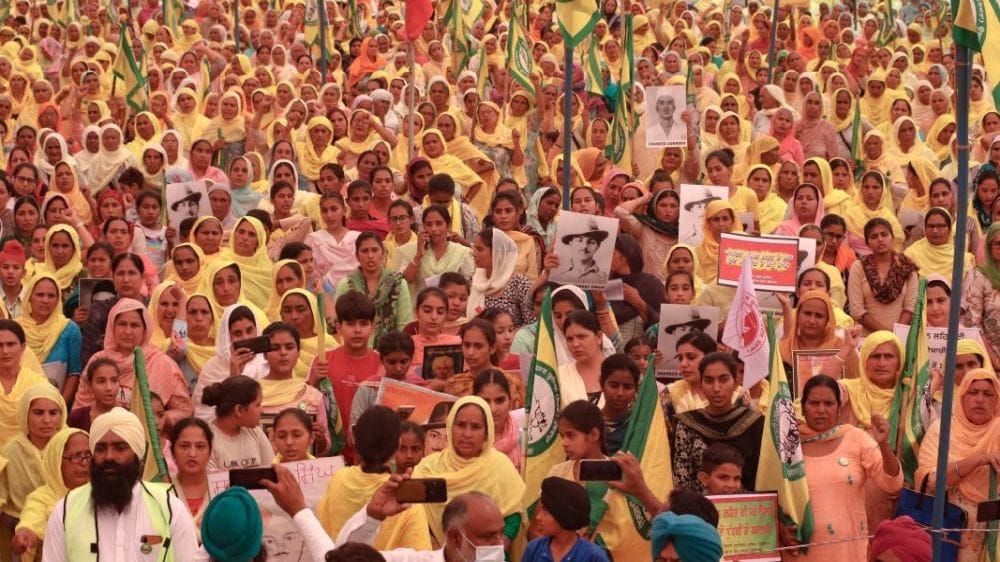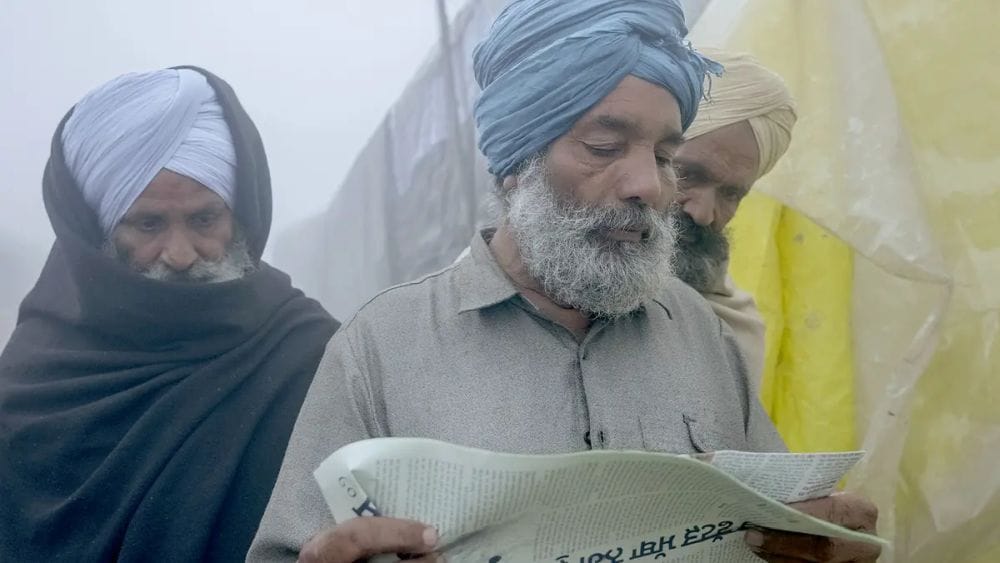Sydney Film Festival – Farming the Revolution (dir. Nishtha Jain)

I had only just been commenting in regards to this film that India was experiencing a “golden age of documentary” and then during the Sydney Film Festival’s introduction, those very words were spoken. Payal Kapadia’s Night of Knowing Nothing, Shaunak Sen’s All That Breathes (an Oscar nominee), Rintu Thomas and Sushmit Ghosh’s Writing with Fire (another Oscar nominee), Sarvnik Kaur’s Against the Tide, Rahul Jain’s Machines, two consecutive winners of Hot Docs’ international prize in this, Nishtha Jain’s Farming the Revolution, and Vivek Chaudhary’s I, Poppy. And those are the just ones I could reel off of the top of my head as an international observer and festivalgoer. It’s an impressive list.
Jain’s film, her eleventh, titled Inqilab Di Kheti at home, is another in a different long line of documentaries. Those of protest. Here, she embeds her camera at Punjab within the 13-month nationwide protest movement to challenge the Modi government’s new farming laws. Perceived as unfair to workers, over 12 million people joined at some point in some place for what may be the largest organised protest of its kind. Often seen navigating through the heaving, but largely congenial crowds, we spot mass food preparation (be prepared for salivate over rotis) and witness rousing speeches. We get police firing smoke bombs and using water cannons and the same sort of ‘leftist’ rhetoric that has wormed its way into every political issue where the rights of individuals are being dismissed for those of corporations, billionaires and private entities.

Less successful is how it handles the multiple references to martyrdom that are made, sometimes just in passing. We learn that there have been over 200 deaths being reported across the entire event, a shocking figure that I suppose I understand the rationale for not focusing on. But it’s a curious omission nonetheless. This seems like something worth extending some time on; at just 102-minutes, it could have withstood to extra time. Similarly, it seems hard to believe that the only antisocial behaviour was that of one towns citizens joining the protest drunk. I suppose capturing such a large event could become unwieldly, but that’s no excuse for sugarcoating. In the grand scheme of things, it’s a modest frustration, but one that lingers after the end credits with nagging persistence.
Nevertheless, what Jain has achieved is impressive. She features some smaller stories within the larger context, although never too much that it distracts from the larger message. Instead, they work to really highlight how this became a big community of activism as people from all across the country helped each other to send a message. It’s the sort of story that remains important to hear. As they say throughout, “long live farmers unity!” Impressive sound design and cinematography complement its message—I made particular note of its nighttime scenes. In fact, cinematographer Akash Basumatari is listed as a co-director in some places. His contribution should not be dismissed to a strong documentary with a vital message in a time of global upheaval.
If you would like to support documentary and non-fiction film criticism, please consider donating by clicking the above link. Any help allows me to continue to do this, supports independent writing that is free of Artificial Intelligence, and is done purely for the love of it.



